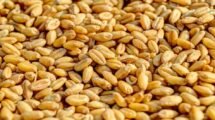As part of its attempts to enhance the supply of coarse grains through ration stores and other welfare schemes, the Centre has permitted state governments to distribute jowar and ragi within 6 and 7 months, respectively, from the end of the procurement period, as opposed to 3 months previously.
According to an official statement from the Union Food Ministry, the government of India has changed the guidelines for acquisition, allocation, distribution, and disposal of coarse grains dated March 21, 2014, and December 26, 2014.
Also Read | Maize acreage increased by 41% in Karnataka in current Kharif season
The 2014 rules governed the procurement of coarse grains, allowing governments to purchase coarse grains from farmers at MSP through the central pool. This was contingent on the Government of India’s earlier approval of a thorough procurement plan submitted by states in collaboration with the Food Corporation of India.
According to the 2014 guidelines, the entire amount was to be distributed within three months of the end of the procurement period.
‘These instructions served the purpose of empowering states to purchase coarse grains.’ This was revealed by the rising trend in coarse grain procurement over the last three years.
‘However, it was observed that some State Governments were experiencing several difficulties with respect to the distribution period of coarse grain, which was 3 months each for procurement and distribution activity, irrespective of the commodity’s shelf life,’ the statement said.
Discussions with various stakeholders were held to alleviate the difficulties faced by some states in the procurement/distribution of coarse grains and to increase procurement of coarse grains through the central pool.The Centre has revised the 2014 guidelines based on discussions with stakeholders.
As per the food ministry ‘The distribution time frame for Ragi and Jowar has been extended to 7 and 6 months, respectively, from the previous period of 3 months,’
This would rise jowar and ragi procurement and consumption because the state would have more time to distribute these produce through the Target Public Distribution System (TPDS)/other welfare schemes, according to the report.
According to the ministry, the provision of inter-state transportation of surplus coarse grains via FCI is included to meet advance demand placed by the consuming state prior to the start of procurement.
‘The new guidelines would increase coarse grain procurement and consumption through the Public Distribution System (PDS). Because these crops are typically grown on marginal and unirrigated land, increased cropping of these crops would promote sustainable agriculture and crop diversification’ According to the statement.
‘The procurement and distribution of millets at Rs 1 per kg will benefit marginal and poor farmers who are also PDS beneficiaries. Regional coarse grains can be distributed for local consumption, reducing the cost of wheat/rice transportation’ According to the statement.
Also Read | Heavy rains, hailstorms struck standing rabi crops, Onion and grapevine
Coarse grains are high in nutrients, are non-acidifying, gluten-free, and have dietary properties. Furthermore, the consumption of coarse grains would help to foster immunity and health, which would help to strengthen our fight against malnutrition in children and adolescents.















Add Comment